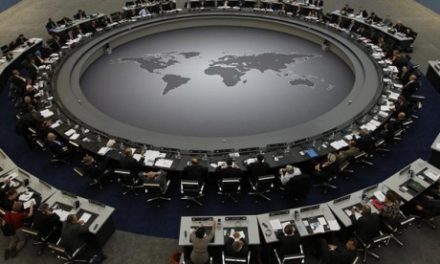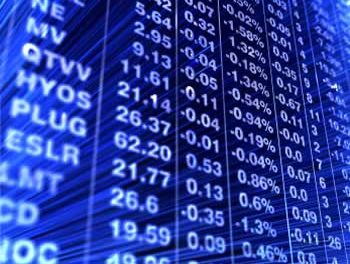“I don’t think the gravity of the situation is understood by everyone,” deputy Prime Minister Ghassan Hasbani said in his office in Beirut. The time has come for an international aid package that will force Lebanon to reform, “the same way that Greece was salvaged, but before it’s too late,” he said.
There’s nothing new about a nation held together by a delicate sectarian power balance being on the brink. But what is new is that Lebanon has never had to face such a daunting set of challenges at the same time, and all while it can count less on traditional sources of money from abroad, whether the diaspora or erstwhile Saudi benefactors.
The country is a political battleground between regional foes Saudi Arabia and Iran, which back opposite sides in the seven-year war next door in Syria.
That conflict has sent 1.5 million Syrians over the border, the most refugees per capita, blocked land exports and caused fights between Lebanese factions that stymied efforts to ease the strain on the country’s finances. There’s also a US-led effort to curb the power of Lebanese militant group Hezbollah.
Lebanese bonds have tumbled and bank deposits are growing at their slowest pace since the end of the civil war almost 30 years ago. Government revenue can’t keep up with spending as the economy splutters and politicians squabble before May elections. The budget deficit ballooned to more than 10 percent of gross domestic product.
Last month, the International Monetary Fund sounded the alarm bell. It said the economy is on an unsustainable path and required urgent action.
The central bank needs to mitigate a slowdown in bank deposits, whose growth has helped support soaring public debt, the IMF said. It currently amounts to $79 billion, or 150 percent of gross domestic product, though the IMF said Lebanon will likely see it reach 180 percent in five years.
That would put it where Greece stands now after the country underwent the world’s biggest debt restructuring in 2012. Japan is the only country with a bigger debt ratio, but it’s not at the mercy of external forces because its currency trades freely unlike dollar-pegged Lebanon or euro-member Greece.
Lebanon will seek to raise funds for a $16 billion infrastructure programme at a donor conference scheduled next month in Paris. In the markets, investors are selling, and the rise in bond yields will make servicing costs more burdensome and the level of debt even more unsustainable, Ziad Daoud, an economist at Bloomberg Economics, wrote last week.
The yield on Lebanon’s dollar-denominated bonds due 2037 jumped 59 basis points last month, the most since the debt was issued last year. The debt used to be a haven in times of market turbulence because of the backing of local banks, but the gain was almost triple the average increase for emerging-market bonds in February, according a Bloomberg Barclays index.
“The reason why it’s no longer a safe trade is due to liquidity because banks no longer provide liquidity,” said Marwan Doumith, who manages about $250 million invested in Lebanese Eurobonds at Blominvest Bank Sal in Beirut.
Foreign investors hold about $8 billion, or 30 percent, of outstanding Eurobonds, he estimated. That’s more than twice the proportion of a few years ago, Doumith said, “which is now a risky situation.” As for the donor conference, “we’re not sure how much the government will be able to bring in,” he said.
The precarious financial position reflects the increasingly dire state of the economy and deteriorating governance, with Lebanon slipping down Transparency International’s corruption ranking to 143rd of 180 countries.
Parliament only managed to pass a budget in 2017 for the first time in 12 years. There’s been a garbage collection crisis and efforts to open up the electricity and telecommunications industries to bring in vital foreign investment have floundered.
More than 70 percent of expenditure goes on government salaries and debt servicing while up to 10 percent goes to subsidizing electricity, leaving the government very little room to cut spending.
While Hasbani said Lebanon needs international help, there are questions where it might come from.
Some Gulf countries, including Saudi Arabia, have balked at helping Lebanon financially like they did in the past because of Hezbollah, the Iranian-backed group that wields so much influence in Lebanon.
Relations with the Saudis appear to be thawing. Lebanese Prime Minister Saad Hariri received a statesman’s welcome in Riyadh last week. It came after an episode in November when he flew to the Saudi capital and was pressured to announce his resignation only to return to Beirut and be reinstated.
The Al Hayat newspaper reported Saudi Arabia will attend the three donor conferences that will be held in Europe this year to raise money for Lebanese infrastructure, the military and help with Syrian refugees. The Saudi-owned publication cited unnamed officials in Beirut.
But Hariri’s recent trip was more politically symbolic than about securing financial aid, according to Hani Sabra, founder of New York-based Alef Advisory.
“I don’t believe Saudi Arabia is planning to provide Lebanon with a large assistance package,” Sabra said. “The trend in Lebanon has been the empowerment of forces, like Hezbollah, that are in opposition to Saudi interests. An injection of money from Riyadh won’t really reverse the trend or deliver on advancing Saudi interests in Lebanon or the broader region.”
Lebanon relies on private-sector bank deposits, mainly from millions of Lebanese living abroad sending money back, to keep the banks stable and defend the dollar peg. As long as the money kept flowing, banks were happy to gobble up government debt.
While deposit growth slowed to 3.8 percent last year because of the Hariri incident in November, central bank Governor Riad Salameh said the financial system has demonstrated its resilience.
Lebanon saw outflows of $2 billion after Hariri announced his surprise resignation. Some banks sent offers by text message and cold-called Lebanese living abroad with offers of higher interest rates. One bank is offering as much as 6 percent on deposits of $1 million or above. The rate rises to 10.50 percent for high local-currency deposits.
The $2 billion has gradually returned, with inflows exceeding outflows since Dec. 10, Salameh said in an interview.
“Fear was created and despite that we held,” he said. Outflows in November were proportionally lower than during two other big crises — the 2005 assassination of Prime Minister Rafiq Hariri and the 2006 Israeli war with Lebanon.
Some agree that Lebanon has what it takes to hold up. Its bonds still offer a good yield and foreign reserves remain sizable compared to its external deficit, said Giuliano Palumbo, a senior portfolio manager at Euromobiliare who helps manage 20 billion euros ($21 billion) of assets including Lebanese government bonds.
A stroll through downtown Beirut gives a taste of decline.
The streets that buzzed with Gulf tourists through the first couple of years of the Syrian war — they made up 30 percent of consumption in Lebanon in the peak June-to-October period — only see a bit of life on the weekend. Vacant stores line the streets, their fronts collecting dust.
Lawmaker Ibrahim Kanaan, head of the finance and budget parliamentary committee, said the government is studying measures to reduce debt servicing and end wasteful spending, such as on music festivals.
“There is an awareness among the main parliamentary blocs that we can no longer continue like that,” Kanaan said. “Yes, we’re late, but it’s better late than never.”



















